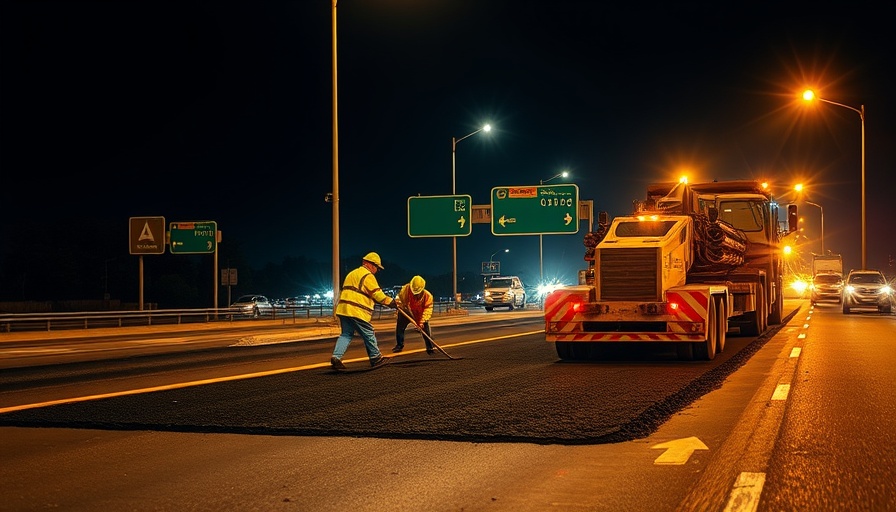
Reinventing Roads: The Future of Sustainable Living in London
In a refreshing turn toward eco-conscious infrastructure, Transport for London (TfL) has recently validated an intriguing initiative that may revolutionize city streets across the UK. After a successful trial integrating 50% reclaimed asphalt pavement (RAP) into the top layer of new roads, TfL stands as a beacon of sustainable practices in urban development. Initiated in 2016 on the A1 at Mill Hill, this trial is one of the first in the UK to not just incorporate recycled materials but to prove their long-term effectiveness and durability.
Heading Toward a Greener Future
As cities brace for a larger focus on sustainability, TfL’s groundbreaking trial is a timely reflection of a broader global shift. The traditional belief that recycled content should only be used in lower road layers has been shattered, revealing that eco-friendly materials can indeed hold their ground under heavy traffic. The success of this trial underscores not only the practical benefits but also the importance of innovation in paving the way for sustainable living in our communities.
Support for Community Sustainability Initiatives
With the rising concerns around climate change and environmental degradation, the implementation of greener construction materials resonates deeply with the values of young homeowners in London. This group values sustainability, and knowing that infrastructure in their city can be both durable and ecologically friendly aligns perfectly with their personal and community goals. Initiatives like the one spearheaded by TfL encourage residents to take pride in their environment and invest in sustainable living practices, such as using recycled materials in local home improvement projects.
The Ripple Effect on Homeowners
For the tech-savvy and eco-conscious homeowners in London, the implications of such innovations extend far beyond roads. As residents become more engaged with sustainability, there are practical applications for their own home improvement projects, including the use of reclaimed materials and other sustainable practices. By promoting eco-friendly living, TfL’s initiative reflects the aspirations of a generation eager to embrace a home that reflects their values, trends that can inspire similar movements at the grassroots level.
Calling for Broader Industry Implementation
TfL's commitment to sustainability is not an isolated effort; it aims to inspire a shift across the infrastructure sector. Isabel Coman, TfL’s director of engineering and asset strategy, expressed a strong desire for other highway authorities to follow suit, amplifying the message that innovation should not compromise quality. Just as TfL has opened the door for a higher acceptance of RAP in core constructions, homeowners can adopt similar innovative approaches in renovation, demonstrating the unity of effort needed to achieve a sustainable future.
Innovation That Underscores Community Values
Mark Flint, technical director at FM Conway, emphasized the importance of relationships in driving sustainability forward. Homeowners can actively participate in this narrative by engaging with local initiatives or supporting businesses that prioritize eco-friendly practices. As London paves the way for recycling and reusing materials in public work, there’s a robust opportunity for homeowners to reflect this sustainability ethos in their own homes, further strengthening community bonds.
Conclusion: A Call to Action
Given the successful outcome of TfL’s trial, let’s inspire one another to embrace innovative, sustainable practices in our homes and communities. Stay informed on local developments, and consider how you can incorporate eco-friendly materials and practices into your DIY projects. Together, we can help shape a greener, more sustainable London for future generations.
 Add Row
Add Row  Add
Add 




Write A Comment